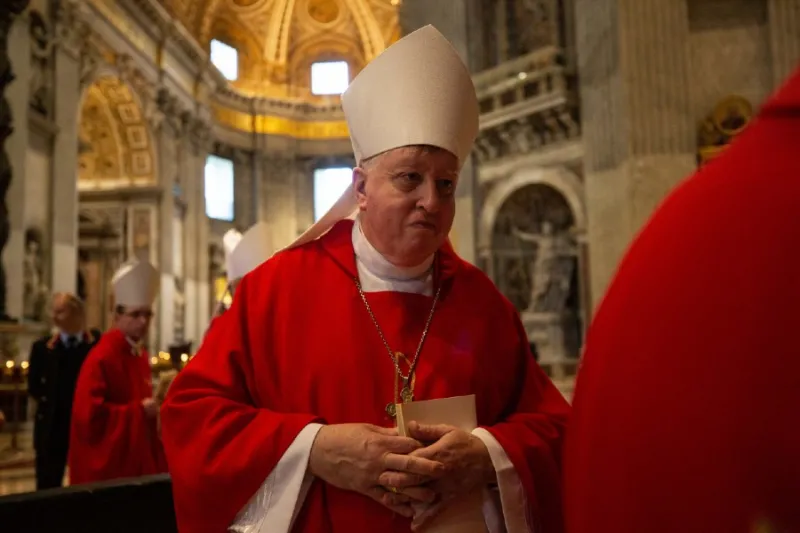 Mitchell Rozanski, then-Bishop of Springfield in Massachusetts and current Archbishop of St. Louis, in St. Peter’s Basilica, Nov. 7, 2019. / Daniel Ibanez/CNA
Mitchell Rozanski, then-Bishop of Springfield in Massachusetts and current Archbishop of St. Louis, in St. Peter’s Basilica, Nov. 7, 2019. / Daniel Ibanez/CNA
Washington D.C., Oct 7, 2021 / 11:10 am (CNA).
The four bishops of Missouri released a joint statement on Wednesday evening condemning the state’s execution of Ernest Lee Johnson, on whose behalf the Holy See pleaded for clemency.
Johnson, 61, was executed by lethal injection on Tuesday, after the Supreme Court denied his emergency appeal for a stay of execution. He was convicted of killing three convenience store employees with a claw hammer in 1994 while attempting to rob the store for drug money..
“As the Catholic bishops of Missouri, we express our disappointment with the decision to allow the execution of Ernest Lee Johnson to move forward yesterday,” said the statement, which was signed by Archbishop Mitchell Rozanski of St. Louis, Bishop James Johnson of Kansas City-St. Joseph, Bishop Shawn McKnight of Jefferson City, and Bishop Edward Rice of Springfield-Cape Girardeau.
The bishops said that while Johnson’s crimes were “heinous and deserve to be punished,” the “pro-life state” of Missouri should cease the use of capital punishment.
The bishops expressed their “sincerest condolences” to the families of Johnson’s victims.
“The lives of Mary Bratcher, Mabel Scruggs and Fred Jones deserve honor and remembrance,” they said. “We pray for the comfort of their loved ones as they are forced to relive the trauma and pain of these crimes through this execution.”
The death penalty, said the bishops, “does not make Missouri a safer or more civil state.”
“As we communicated in our clemency request last month, the death penalty degrades us as a society and teaches our children that violence is the proper response to violence,” they said. “When someone is executed, the opportunity for them to undergo a conversion and repent prior to their final judgement may be lost. That important time for grace to work in a person’s heart is taken away.”
Alternative punishments, such as life in prison without the possibility of parole, would serve as a suitable way to “address these crimes without resorting to the death penalty,” they said.
“We ask Catholics and people of good will to join us in seeking alternatives to the death penalty for Missouri’s most violent criminals,” the bishops said. “Even those who commit the most offensive acts do not lose their human dignity before God.”
Johnson’s execution was controversial due to questions surrounding his intelligence. His lawyer, Jeremy Weis, claimed that Johnson was intellectually disabled and had an IQ below 70.
The Missouri Supreme Court ruled that Johnson had not proven that he was intellectually disabled, noting that he had extensively planned the crimes and taken steps to destroy incriminating evidence.
Johnson was initially scheduled to be executed in 2001, but the U.S. Supreme Court ruled that it was unconstitutional to execute those with intellectual disabilities. He was re-sentenced to death in 2003 before that sentence was tossed out by the state Supreme Court. He was re-sentenced to death again in 2006.
Archbishop Christophe Pierre, Apostolic Nuncio to the United States, on Monday issued a message to Missouri Gov. Michael Parson asking for “some appropriate form of clemency” for Johnson.

[…]



